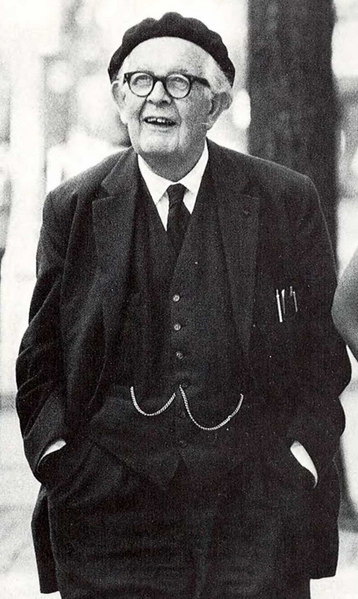Child care education

Child Care Education is an important component in the delivery of high-quality #early_childhood_education. It involves teaching educators about the language, social, emotional, physical, and cognitive needs of children. Understanding the importance of child care education and the child care worker education requirements provides a foundation for creating a safe and supportive environment that fosters growth and positive development for children.
By taking child care education trainings, caregivers and educators learn about developmental theories and behavior management strategies for the development of social and emotional skills. Educators learn about health, safety, and nutrition as well as the importance of play in a child's development. #health_and_nutrition
Other than formal education, childcare providers can benefit from continued education and professional development courses to keep on top of the latest developments in early childhood education research and state regulations. By utilizing trainings from accredited institutions in childcare education, we can ensure that young children receive the care and support they need to thrive reaching their full potential.
What are the primary components of Child Care Education?
Several components are key to Child Care Education. These include:
- Child #Developmental_Theories & Stages: This domain details theories of development and age-specific milestones of development in all areas. Understanding developmental theories are essential for developing appropriate activities for young children of different ages.
- Child #health_and_safety: This covers health and safety practices, including #first_aid, #CPR, and #emergency_preparedness. Some states require additional training in medication administration taught by nurses or medical practitioners. Other topics that fall in this area include supervision around water, playground safety, and training in abuse and neglect.
- Nutrition: Food is important for our development and growth. Courses in this area provide daycare teachers with a background in appropriate nutrition. It enables them to identify suitable and healthy meals and snacks, which meet children's dietary needs. This becomes especially important with the diverse society we live in, and the variations of food restrictions because of religious and social backgrounds.
- Behavior management & redirection: Knowing when to apply which strategies for positively managing and redirecting behavior in the classroom is crucial. Knowledge of how to interpret child behaviors is critical to how caregivers should respond.
- Learning through play: Recognizing that children learn through play is an important concept for early childhood educators. Courses in this area demonstrate such facts and provide tools and examples, which can be utilized in curriculum planning. Examples include learning math through cooking and geometry using play dough. Play is important in childhood development, and educators should understand its role in exploration and providing opportunities for learning.
- Lastly, we discuss cultural sensitivity topics: Given the diverse population of children and families that childcare providers will work with, it is essential to be sensitive to the diversity of children's cultural backgrounds. Childcare programs should be welcoming to all cultures and provide an inclusive environment.
By applying these components to curriculums and daily activities, caregivers and educators can provide high-quality care that supports the growth and development of young children.
1. Child Developmental Theories & Stages
 Child development refers to the motor (physical and motion), cognitive, language, emotional, and social changes that occur in children from birth through adolescence. Understanding child development theories and milestones are essential for providing appropriate care for children of different ages.
Child development refers to the motor (physical and motion), cognitive, language, emotional, and social changes that occur in children from birth through adolescence. Understanding child development theories and milestones are essential for providing appropriate care for children of different ages.
Child development theories help us understand how children grow and change over time. These theories provide a framework for understanding the different stages of development and the tasks that children must master at each stage.
Child development milestones are the typical behaviors and abilities that children display at different ages. Milestones can include things like sitting up, crawling, walking, talking, and developing social skills.
By understanding child development theories and milestones, childcare providers can incorporate appropriate care and support for children of different ages. For example, they can create activities and experiences that are developmentally appropriate and help children to reach their full potential. They can also identify potential developmental delays or concerns and work with families to address them.
Examples of developmental theories are Erikson’s Psychosocial Developmental Theory, Freud’s Psychosexual Developmental Theory, and Piaget’s Cognitive Developmental Theory. All of these are covered in our Developmental Theories online training course.
2. Health and safety
 Health and safety are critical components of childcare education. Childcare providers must be trained in health and safety practices to ensure the well-being of the children in their care. Some of the key areas of health and safety training include:
Health and safety are critical components of childcare education. Childcare providers must be trained in health and safety practices to ensure the well-being of the children in their care. Some of the key areas of health and safety training include:
- First Aid and CPR: Childcare workers, including in some states directors and assistant directors, should know how to respond to common injuries and medical emergencies. In some states, there are requirements for a minimum number of staff per center with an active First aid and CPR card/certificate. Common hazardous events with children include choking, cuts, and allergic reactions. Staff should as well be trained in CPR to respond to cardiac emergencies.
- Avoidance of SIDS and Safe sleep practices: Creating a safe sleep area is essential for infants given that Sudden Infant Death Syndrome ( #SIDS ) is statistically associated with sleeping positions. Since there is no exact known cause, it is important for childcare providers to apply safe sleep practices including a suitable infant sleep environment.
- Cleanliness and hygiene: Applying proper handwashing techniques (for teachers and kids) and proper diapering procedures is crucial for everyone's health. Educators must understand procedures for cleaning, sanitizing and disinfecting to minimize the spread of germs in a childcare program.
- Food safety: Correctly storing, preparing, and serving food safely helps to prevent foodborne illness and cross-contamination of allergens. It is critical that educators know what food allergies exist in their classes and center.
- Emergency preparedness: This area differs between states. For example Nevada's emergency against natural man made events course vs Maryland's Emergency and Disaster preparedness slightly differ in content layout. Some states are more vulnerable to man-made emergencies while others are more prone to natural events like weather and earthquakes. In addition, emergency contacts differ between states. Getting the correct up-to-date information for your state is crucial - and that requires choosing the correct training. Childcare providers should have a plan in place for responding to emergencies, such as natural disasters or lockdown situations.
Getting training in health and safety practices is important for the safety of daycare workers as well as the children in their care. It allows quick and appropriate responses to various emergency events ensuring the well-being of children and families.
3. Nutrition
 Nutrition is required for healthy #growth_and_development. If we analyze children's schedules, kids spend the majority of their day in childcare programs and not at home. Accordingly, daycare workers must be able to apply concepts of child nutrition to provide healthy menus and choices meeting children's dietary and growth needs. Since their main and primary meals are usually within the time spent in the child care center or home daycare nutrition education is vital for childcare providers.
Nutrition is required for healthy #growth_and_development. If we analyze children's schedules, kids spend the majority of their day in childcare programs and not at home. Accordingly, daycare workers must be able to apply concepts of child nutrition to provide healthy menus and choices meeting children's dietary and growth needs. Since their main and primary meals are usually within the time spent in the child care center or home daycare nutrition education is vital for childcare providers.
Teachers should be aware of the federal as well as state #dietary_recommendations for children of different ages and be able to create menus that provide a variety of healthy foods. Avoid recommending or presenting one's own preferred diet as that may not be suitable for children or their social and cultural dietary constraints.
Childcare providers can also play a role in promoting healthy eating habits in children. This can be done by involving them in making choices and planning.
Choosing developmentally suitable meals and promoting healthy eating habits leads to the development of lifelong health and well-being.
4. Behavior management
 Effective behavior management is essential in childcare settings, as it promotes positive social and emotional development and creates a safe and supportive environment for children. Childcare providers should have effective strategies for managing behavior and promoting positive interactions among children.
Effective behavior management is essential in childcare settings, as it promotes positive social and emotional development and creates a safe and supportive environment for children. Childcare providers should have effective strategies for managing behavior and promoting positive interactions among children.
Some strategies for behavior management include:
- Positive reinforcement: When children perform according to expectations, praising and rewarding children for good behavior can encourage them to continue such positive behaviors.
- Clear expectations: As a habit, teachers should use the initial few minutes of each session, class, or activity to establish clear rules and expectations. This can help children understand what is needed of them and what roles and actions should they perform.
- Consistency: Consistency in enforcing rules and consequences can help children understand the consequences of their actions and promote fairness in the childcare setting.
- Redirection: Redirecting children to other activities or behaviors can help to prevent negative behaviors from escalating.
- Modeling positive behaviors: Childcare providers can model positive behaviors and interactions, such as sharing and taking turns.
Creating a #safe_environment involves managing children's behavior. Knowing what tools to use at which moments are crucial for such success. Applying such tools in practice becomes more important as teachers grow their experience.
5. Play and learning:
 #Leaning_through_play is a crucial component of child development. It enables exploration and experimentation, while at the same time, it allows space for peer interaction and exchange of experience with other children. In addition, such social interaction educates kids on how to communicate with their peers and how to summarize the findings of their tests, experiments, and attempts.
#Leaning_through_play is a crucial component of child development. It enables exploration and experimentation, while at the same time, it allows space for peer interaction and exchange of experience with other children. In addition, such social interaction educates kids on how to communicate with their peers and how to summarize the findings of their tests, experiments, and attempts.
Childcare providers can create a play-based learning environment that supports children's natural curiosity and creativity. They can offer a variety of materials and experiences that promote exploration and problem-solving, such as art supplies, blocks, puzzles, and sensory activities.
In addition to promoting play and exploration, childcare providers should also be intentional about teaching specific skills and concepts through play. For example, they can use games and activities to teach children about letters, numbers, and shapes, or to promote social and emotional skills like empathy and cooperation.
By incorporating play and learning into their childcare programs, providers can support children's development across all domains and foster a love of learning that can last a lifetime.
6. Cultural competence:
An important aspect of the childcare setting is cultural sensitivity and competence. It supports the social and emotional development of children from diverse cultural backgrounds and reinforces the normality of what they see at home and with close families. Childcare providers should be sensitive to the diversity of cultural backgrounds within their center's families and be able to create a welcoming and inclusive environment.
Childcare providers can promote cultural competence by:
- Learning about the cultures represented in their child care program and showing respect for cultural differences.
- Incorporating the cultural impact of disabilities within the families and allowing a normal and equal opportunity for family members and children with disabilities to take part in events organized by the child care center. This includes signs, translators, and more space for wheelchairs thus facilitating all family members' presence.
- Incorporating cultural diversity into the program's activities and curriculum.
- Providing materials and resources that reflect the diversity of the children in their care.
- Using positive and inclusive language that reflects the diversity of the children and families in their care.
Promoting cultural awareness within schools and educational centers leads children to the development of a positive sense of identity and respect for different others. This as well creates an inclusive environment promoting well-being for all children.
Latest Jobs
- 45 Hour Child Growth and Development
- Asthma, Allergy and Anaphylaxis Prevention and Management Training for Early Education Providers
- CDA Bridge Bundle: Family Child Care without Portfolio Review
- CDA Bridge Bundle: Infant/Toddler without Portfolio Review
- 45 Hour Infant and Toddler Methods and Materials
- 45 Hour Preschool Methods and Materials
- CDA Bridge Bundle: Preschool without Portfolio Review
- Texas Director Credential
- Daycare Providers Trainings
- UNITED STATES OF AMERICA - Tennessee
- How to Become a Preschool Teacher in Florida
- Arizona and the CDA Credential
- CDA for Oregon Providers
- Child Development Courses Online
- How to open a Family Child Care Home in Maryland
- Child care education
- How to Start a Daycare with Success
- How to Start a Daycare with Little Money
- How to Start a Daycare with the Right Qualifications
- Michigan Child Care Providers and the Child and Adult Care Food Program (CACFP)
- National Standards for Child Care
- From Certification to Career: How a 90-Hour Child Care Certification Opens New Opportunities
- Childcare Courses 101: Everything You Need to Know to Start Your Career
- How the Right Training Turns Child Care Workers into Rockstars
- Child Care News in Pennsylvania: What Families and Providers Need to Know in 2025